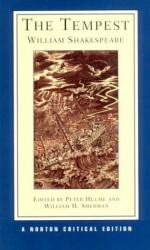|
This section contains 11,311 words (approx. 38 pages at 300 words per page) |

|
SOURCE: "Fantasy and History in The Tempest," in The Tempest, edited by Nigel Wood, Open University Press, 1995, pp. 127-64.
In the excerpt below, Wheeler focuses on Prospero's aggressive dominance of others and on Caliban's passive dream of sensual opulence. From a psychoanalytic perspective, the critic calls attention to the similarities between this pair and others in the Shakespearean canon—Bottom and Oberon, Richard II and Bolingbroke, Falstaff and Henry V—who represent the opposition of narcissistic eloquence and theatrical control
The story Prospero tells Miranda about their past, whatever its claim to historical veracity, contains a simple and important truth at the heart of his post-Milan life. Once when he gave his brother his trust he lost his inherited political power; now that he has found another source of power he will trust no one. Prospero's power over the action of The Tempest is unparalleled in Shakespeare's drama...
|
This section contains 11,311 words (approx. 38 pages at 300 words per page) |

|


